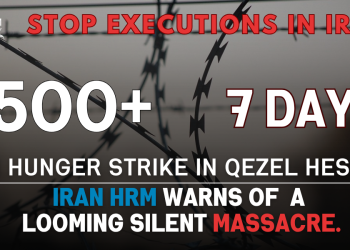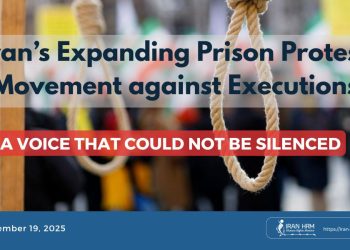On Tuesday, November 5, 2024, inmates at Dastgerd Prison in Isfahan joined the “No to Execution Tuesdays” campaign, initiating a hunger strike to protest the alarming rise in executions across Iran. By refusing prison meals, they joined a movement now involving 25 prisons nationwide that challenges the escalation of capital punishment in the country.
The prisoners at Dastgerd released a statement highlighting their motivation for joining the campaign, stating: “Each day, several of us are taken away for execution, and executions in this prison are on the rise. In protest, we are now joining the weekly ‘No to Execution’ hunger strike.”
This campaign drew significant attention on Tuesday, as prisoners in 24 other facilities across Iran collectively engaged in hunger strikes to protest the mounting executions. In their statement, the Dastgerd prisoners condemned recent executions, particularly the spike in October. They highlighted the recent execution of a Jewish prisoner, Arvin Ghahremani, in Kermanshah’s Dizelabad Prison, and voiced concern over the impending sentences in the “Ekbatan Case”—a high-profile case involving eight young protesters from the 2022 nationwide protests who may face severe charges, including the risk of execution.
The protests occur amidst an alarming surge in executions throughout Iran in recent months. In October alone, 178 executions were recorded, the highest monthly total in over two decades. This rapid pace continued into early November, drawing widespread concern among human rights advocates.
Iran HRM calls on the international community—particularly the United Nations and the European Union—to urgently intervene by initiating an independent investigation into extrajudicial executions in Iran. Such action is crucial to hold Iranian authorities accountable for these escalating violations and to put an end to this wave of state-sanctioned killings.







